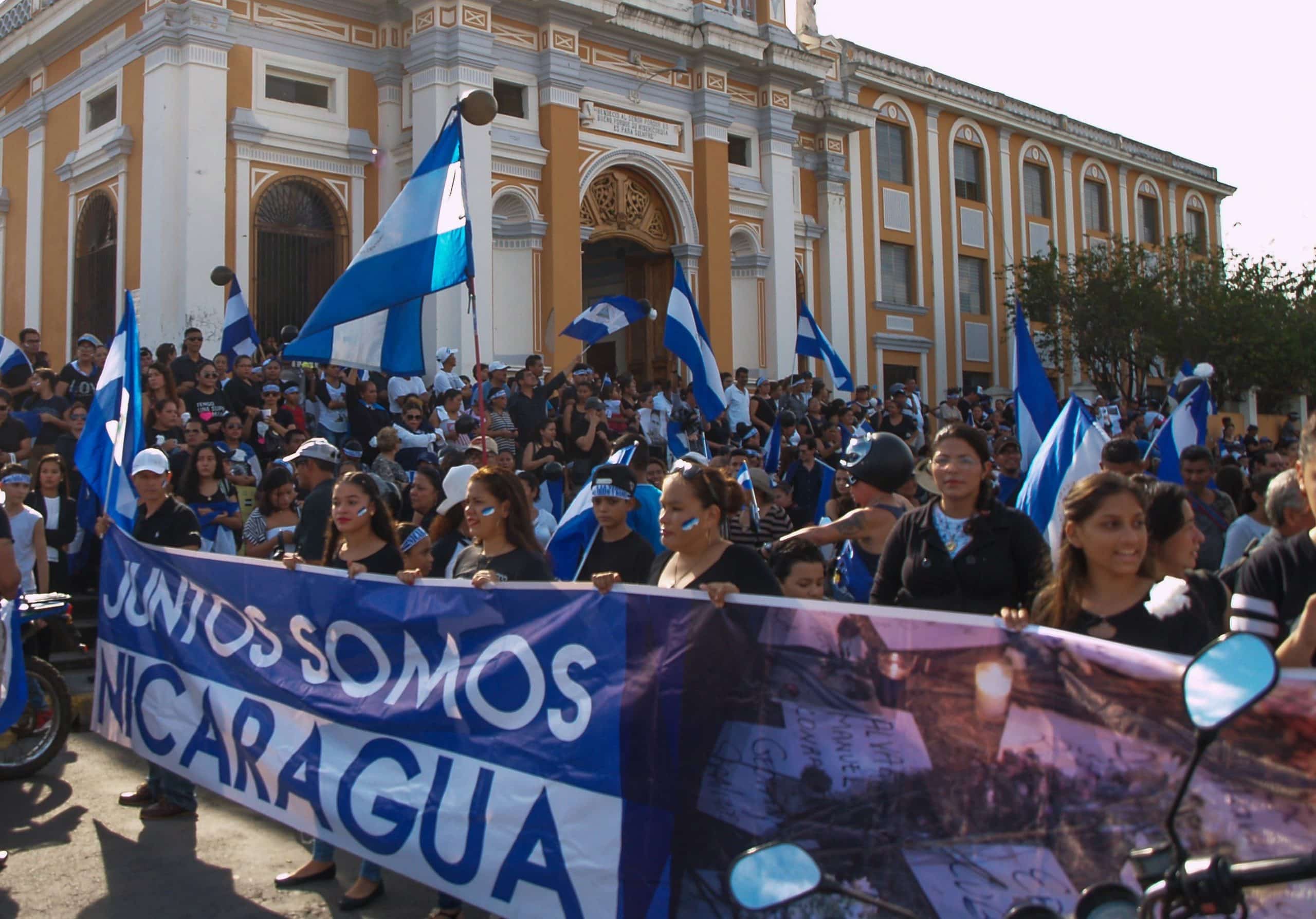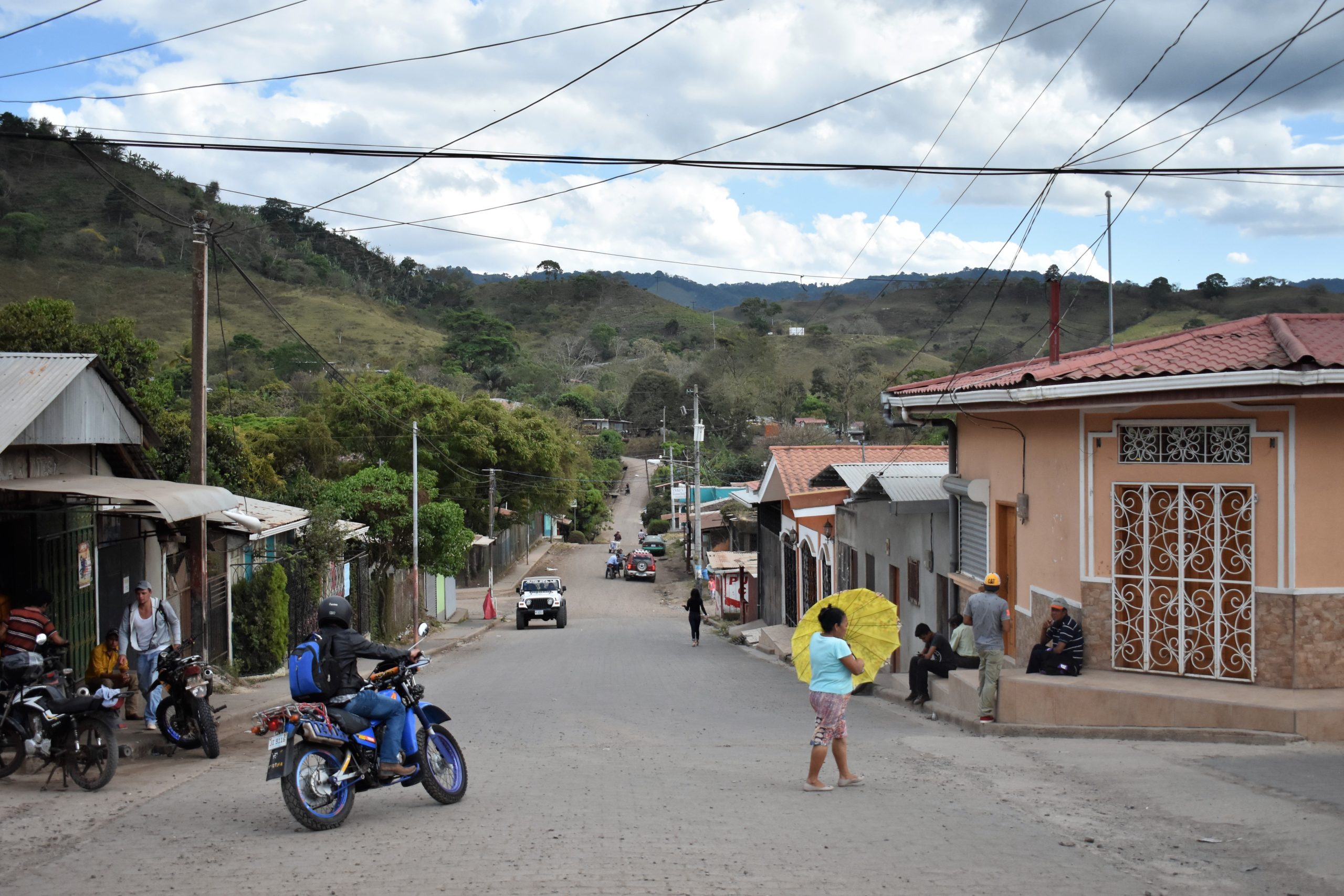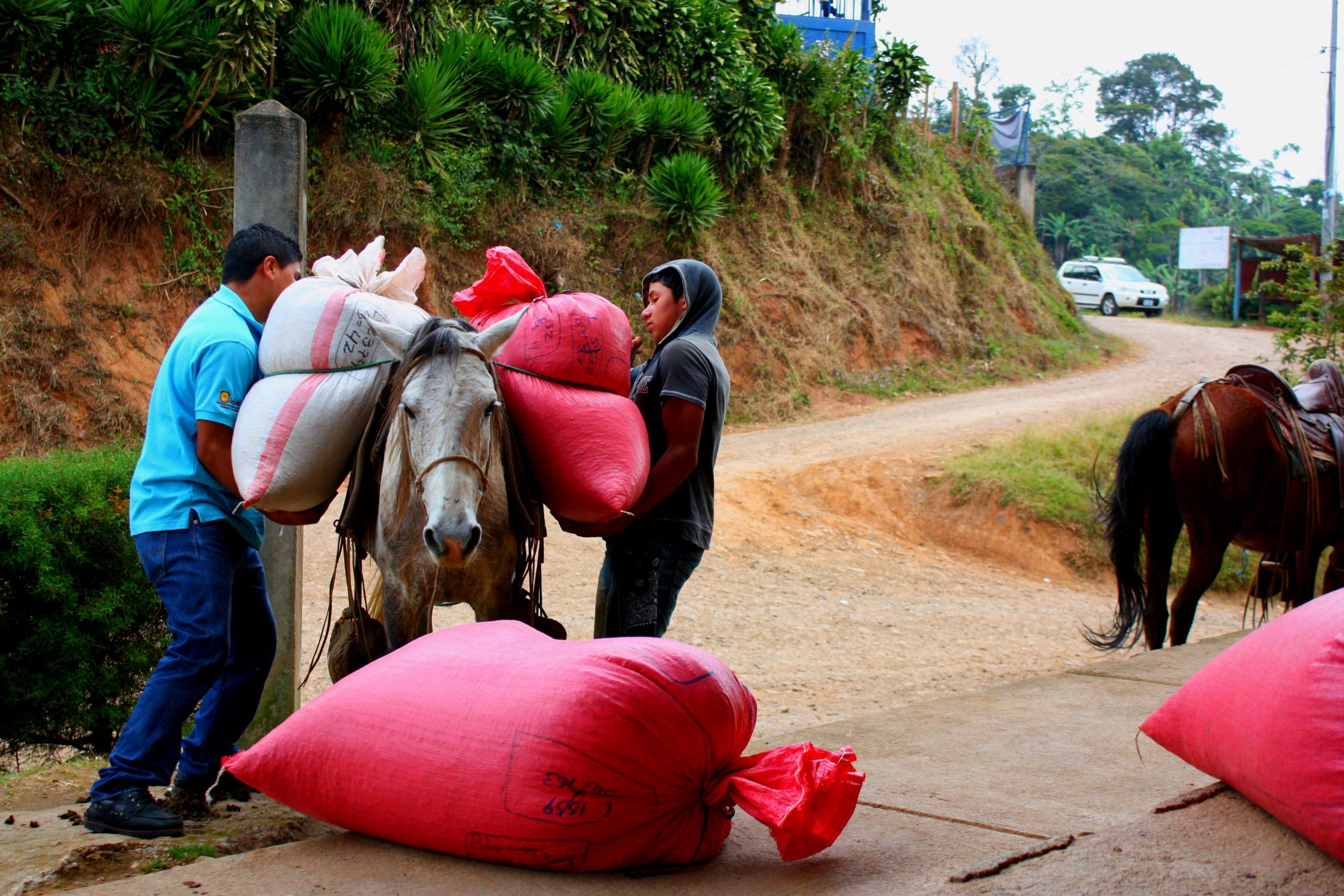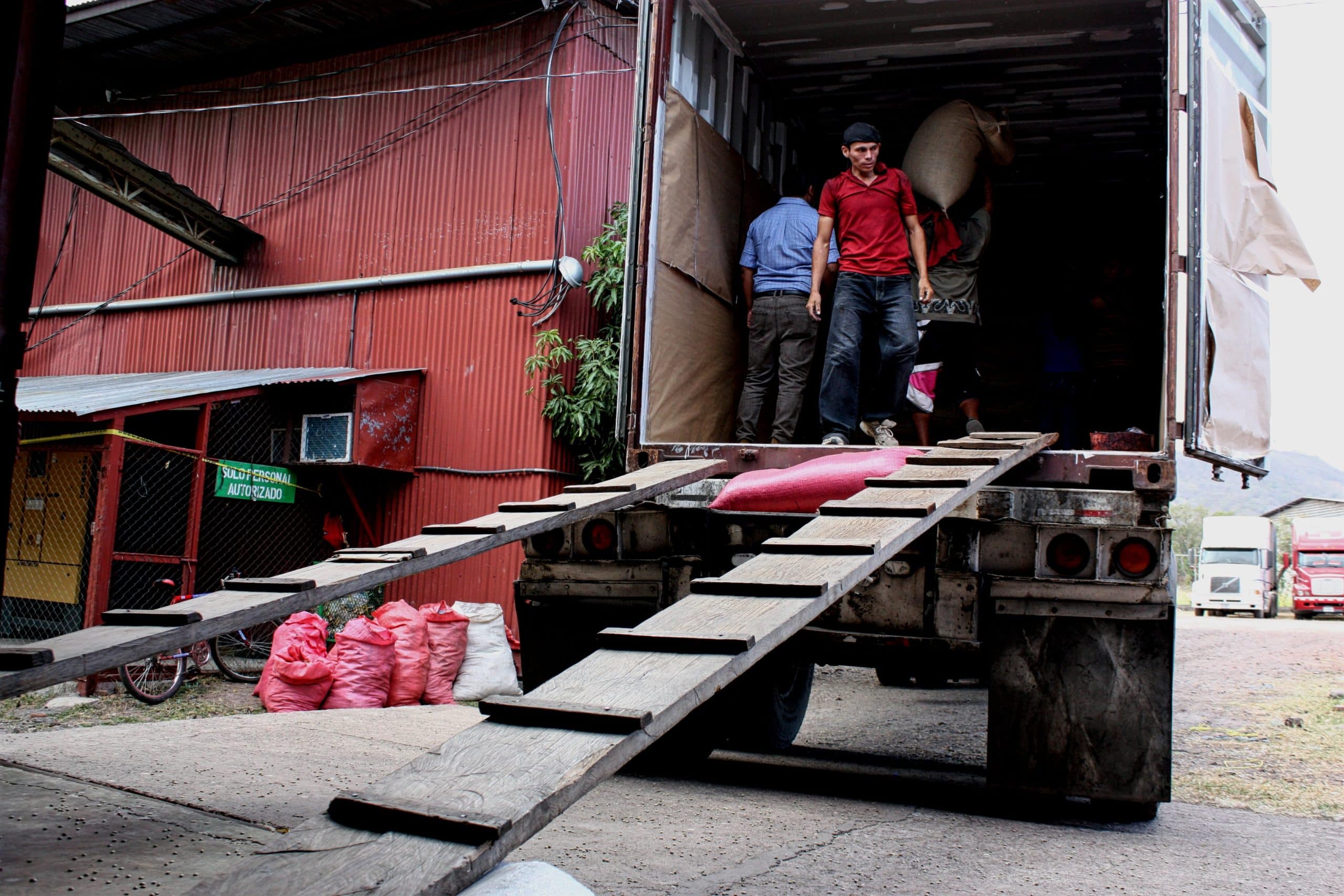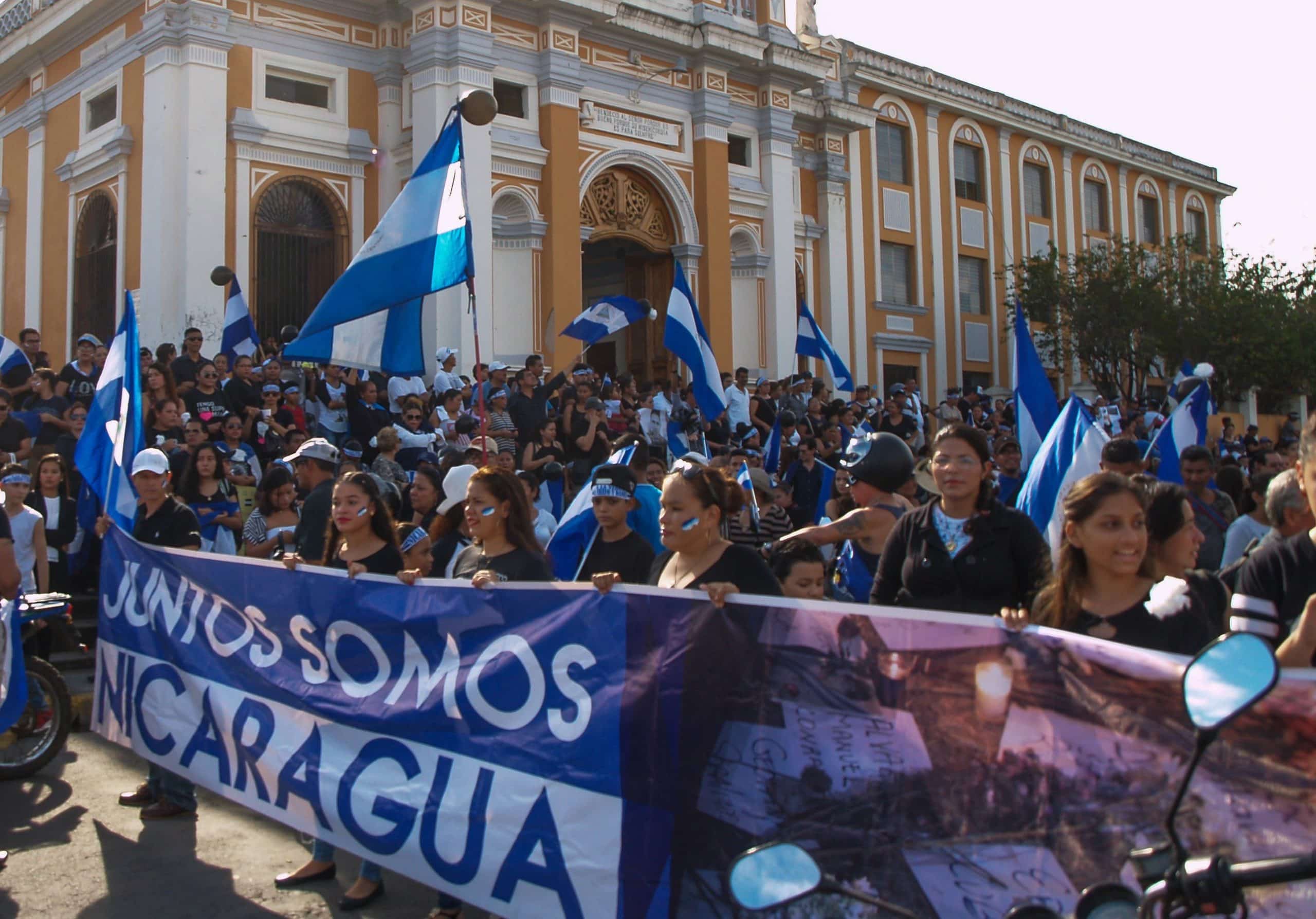
For years, many Nicaraguans have bristled under the increasingly repressive policies of President Daniel Ortega. Last April, the passage of an unpopular tax law tipped the country over the edge.
After the Ortega regime attempted to simultaneously raise taxes and cut pensions, protests erupted in the capital city of Managua. Clashes between demonstrators and government forces quickly turned violent. Hundreds were killed, and hundreds more imprisoned without trial. It was the deadliest unrest Nicaragua had seen since the end of the country’s civil war in 1990.
While Nicaragua’s Catholic bishops initially tried to broker an agreement between the government and the resistance, the dialogue was short-lived. A heavily armed police force now patrols the streets—often supported by pro-government militias. Fearing repercussions, many who oppose the regime don’t speak up. Once-common political demonstrations have dwindled.
San Sebastián de Yalí, a small town in northwest Nicaragua. This photo was taken just a month before the unrest in Nicaragua began.
It’s in Nicaragua’s cities that these changes are most obvious. However, the turmoil also affects rural regions—including the northwestern coffeelands where Root Capital has operated since 2002. Loan officer Marbeli Rodríguez and agronomic advisor Eddy Salgado report three main ways the ongoing conflict impacts our 26 client businesses in the country.
1. Travel is less safe. In small cities like Jinotega, Matagalpa, and Estelí—hubs of Nicaraguan coffee country—most people no longer go out at night. “We can’t do that anymore,” Marbeli says. Visiting remote coffee businesses already required two- to three-hour car trips; with nighttime travel no longer a viable option, our field staff now have to cut visits short or stay with clients overnight. What should be a week’s worth of work, say Marbeli and Eddy, now takes two or more.
2. Important projects must be put on hold. With support from the Rising Tide Foundation, our client El Gorrión planned to build an ecotourism trail that would create new income streams for the cooperative’s members. As tourism ground to a halt, this project became infeasible. Our staff also reports that some cooperatives are no longer pursuing Fair Trade and organic certification, because they can’t find the financing to make it viable.
3. The risk has caused most lenders to leave. With coffee prices at a ten-year low and climate change an ever-present threat, Nicaraguan coffee farmers and cooperative leaders were already facing challenges. Now, as local bank reserves dry up and foreign financiers pull out of the country, cooperatives struggle to access the capital they need to pay farmers, let alone make long-term investments.
Even in an extremely challenging business environment, our clients continue to produce and export coffee.
When evaluating the impact of our loans, a key factor we examine is additionality. A loan is considered high additionality if the cooperative can’t access a similar loan on similar terms from any other financier. With local and international banks no longer funding coffee businesses in Nicaragua, social lenders like Root Capital have become the only option. “If we were to leave,” says Marbeli, “that would be the last straw.”
There’s no doubt that the conflict in Nicaragua makes work harder for our clients, and for us. But that work has never been more important. That’s why instead of giving up, we adapt.
Coffee cooperatives like UCCEI (pictured above) continue to provide opportunities for thousands of farmers.
When traveling after dark turned impossible, Marbeli and Eddy started visiting cooperatives first thing in the morning. When El Gorrión’s ecotourism trail became impractical, the cooperative instead built a commercial chicken facility to diversify members’ incomes. Despite the odds, we are working with our clients in Nicaragua to do what they do best: transform rural communities.
We know it’s possible because our clients have weathered such threats before. Coffee leaf rust. Volatile prices. Climate change. “We’ve had crises,” says Eddy, “but with support, cooperatives have survived.”
Root Capital’s support, says El Gorrión’s manager Marlene Hernandez Rivera, “has allowed our organization to access opportune financing and confront the difficult situations…that our country is going through. Thanks to this, our producers can continue with the harvest.”
Cover photo © Julio Vannini / CC BY 2.0. All other photos © Root Capital.
